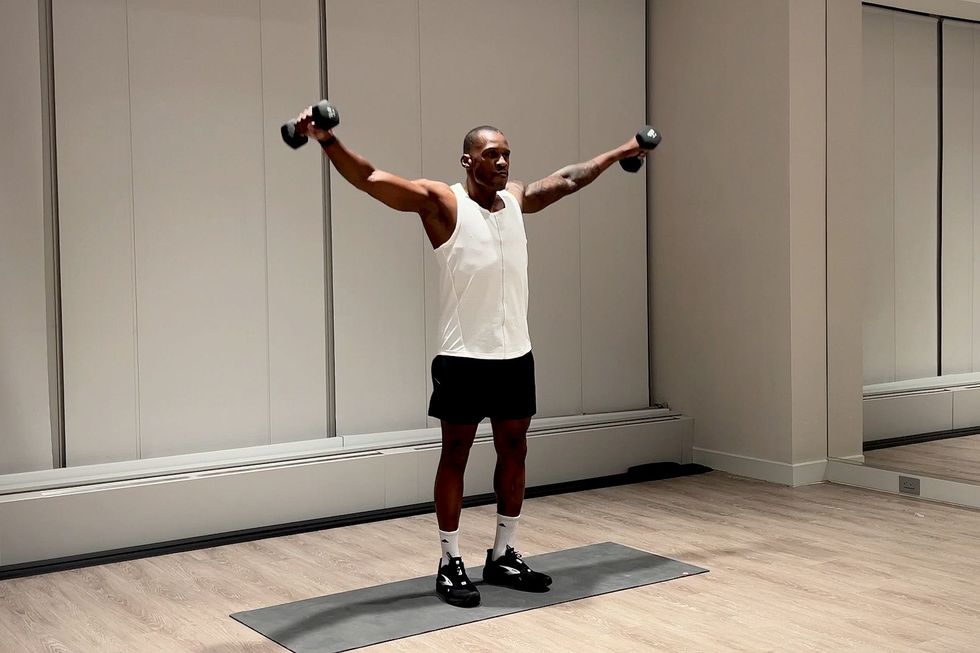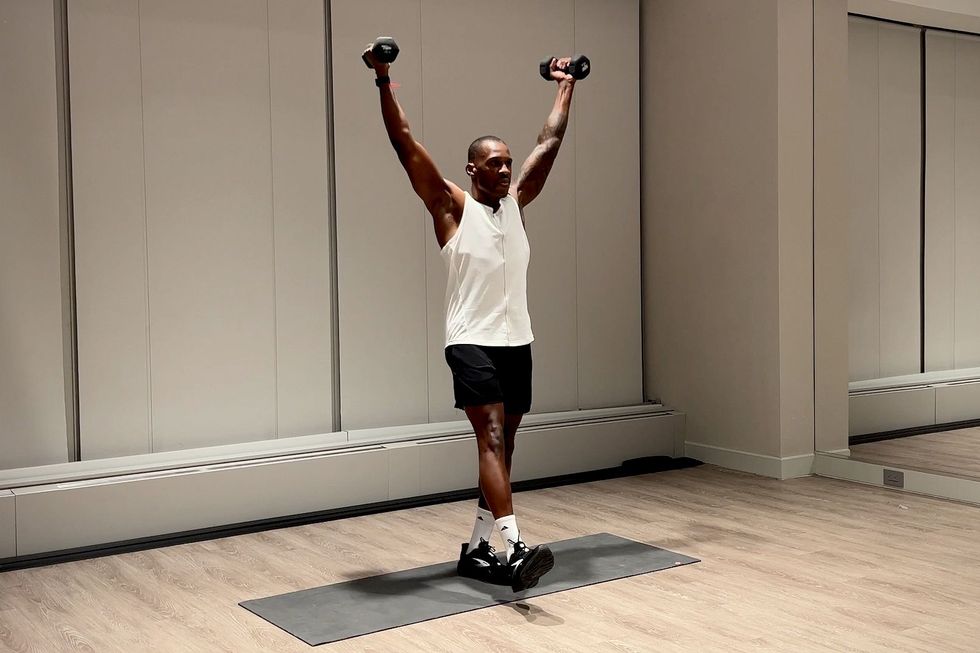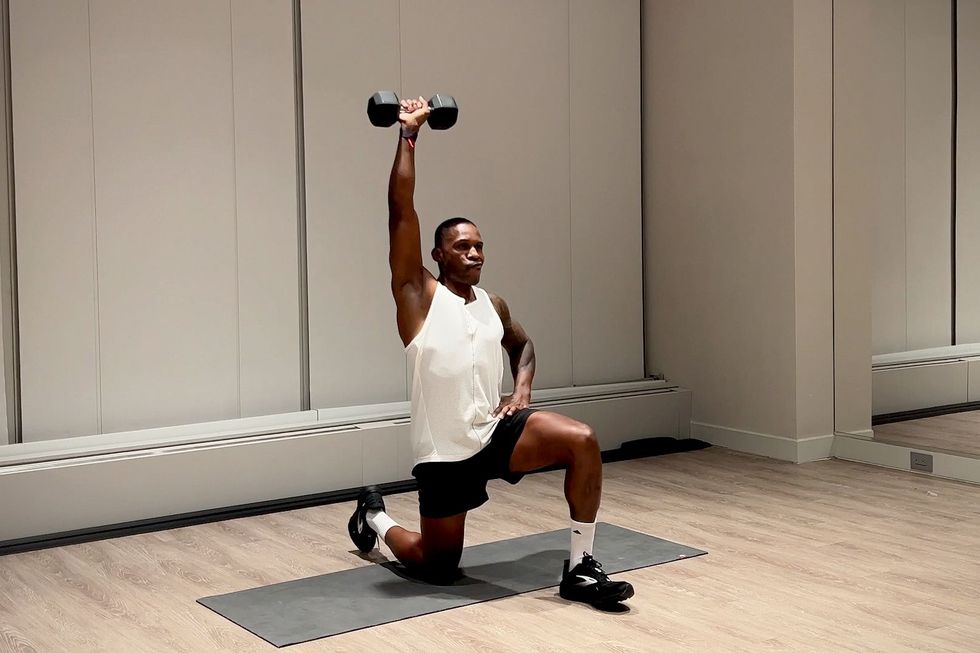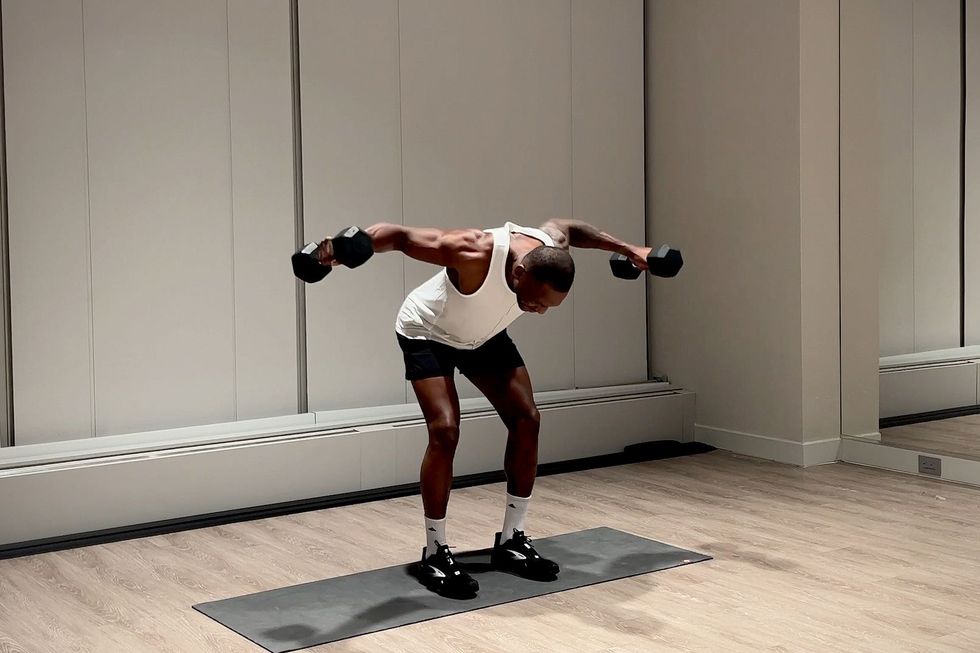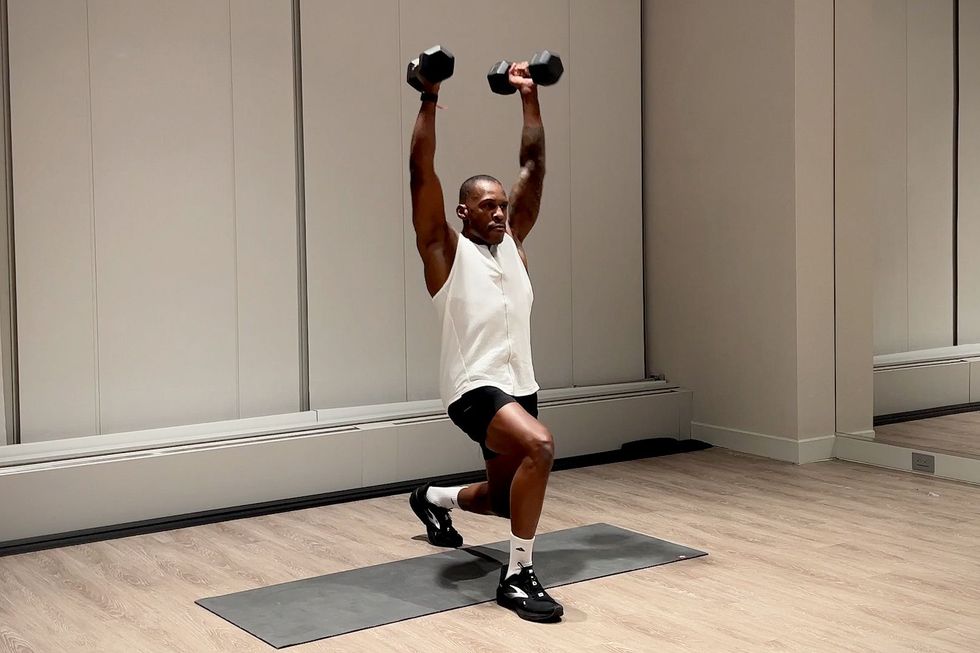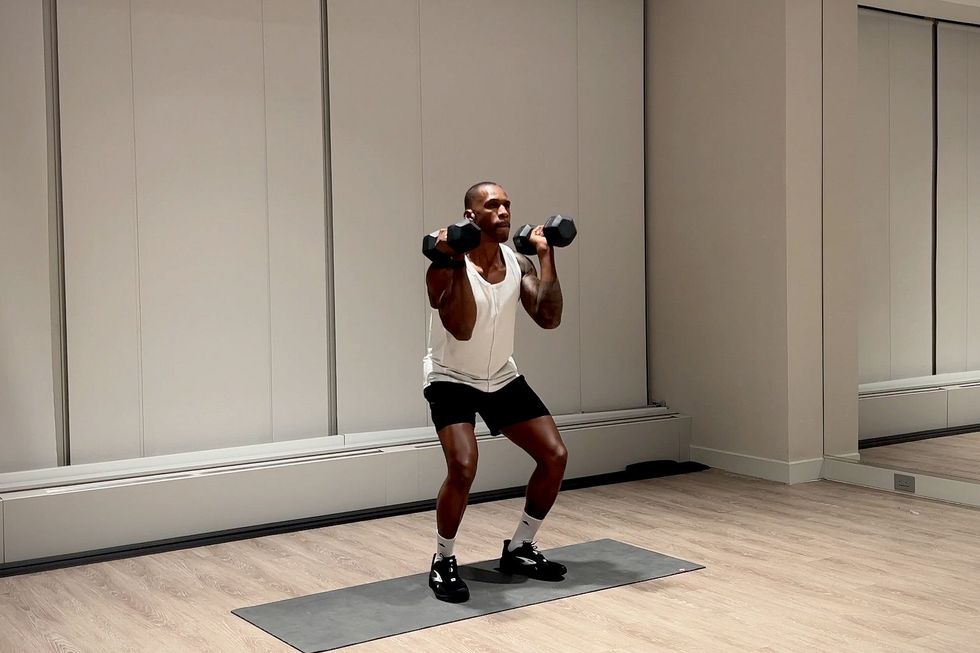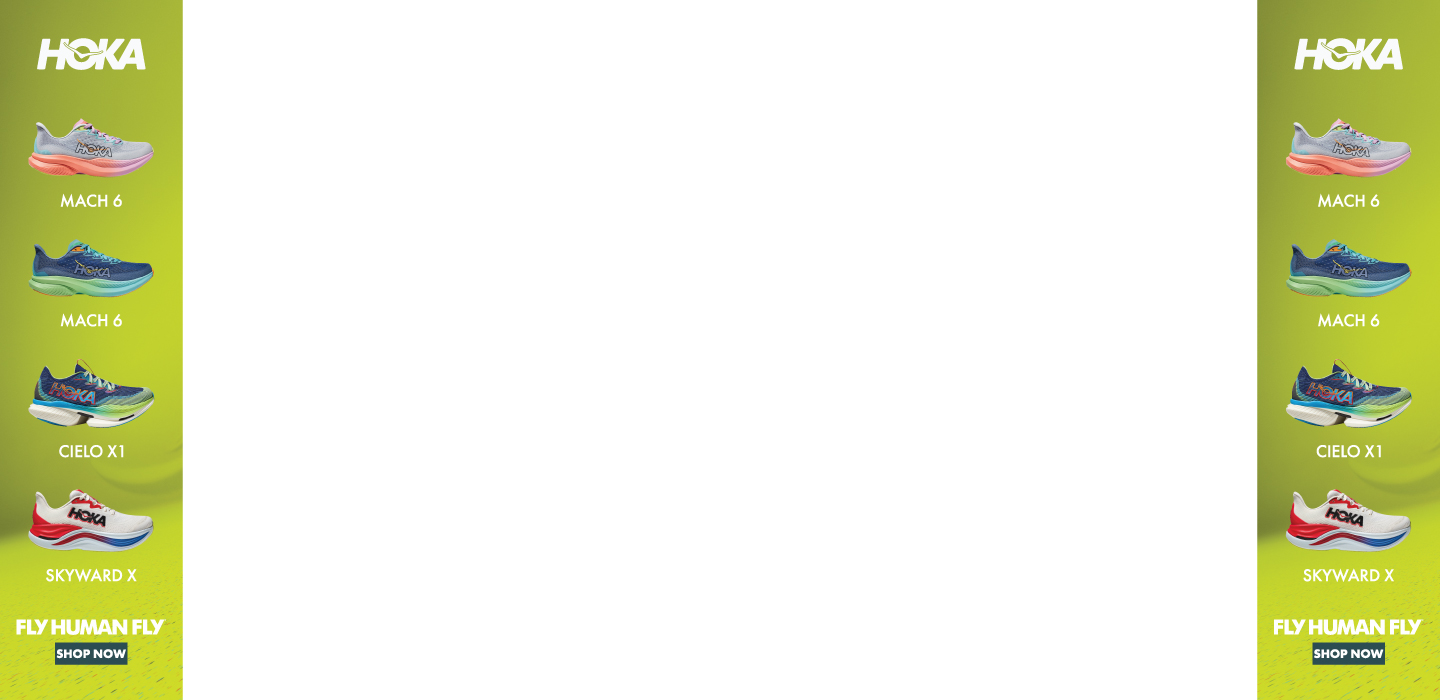A Shoulders and Arms Workout to Build Upper-Body Strength
Six exercises to burn out your posture-supporting muscles.
The start of the year is the perfect time to focus on building strength in your entire body. By doing so, you’ll build the strength and stamina you need to take on longer, faster kilometres come racing season.
While you might lean toward building up your lower half, focusing on the upper body is just as important. That’s why we asked Yusuf Jeffers, NASM-certified personal trainer and USATF-certified running coach, to design this shoulder and arms workout specifically for runners.
The Benefits of a Shoulders and Arms Workout
Building strength in the shoulders and arms will not only improve your arm swing, but it will also help you build a stronger upper half for better posture—which is important whether you’re clocking kilometres or not, Jeffers tells Runner’s World.
Maintaining good posture while you’re running “can translate to better expression of power and ultimately faster paces,” Jeffers adds. Outside of your running, an upright position and strong shoulders and arms means you’ll be able to execute daily tasks easier, like lifting and moving things around the house or even sitting at your desk without discomfort, he adds.
How to use this list: If your goal is to build strength, Jeffers suggests doing each move for 8 to 12 reps with a set of dumbbells that is challenging enough to make those last few reps feel almost impossible to maintain good form. Do each exercise for 2 to 3 sets before moving on to the next. Rest for 2 minutes between sets.
If you’re after more conditioning, do the exercises as a circuit, still performing 8 to 12 reps, but going in order down the list for one round, then repeating from the top. Do 2 to 4 sets with little rest between exercises, and 2- to 3-minute rest in between each round.
For this workout you will need a set of dumbbells, and an exercise mat is optional.
1. I – Y – T Raises
Why it works: Practising this exercise can help improve your posture on and off the road. More particularly, it will help runners strengthening their anterior, medial, and posterior delts (all muscles of the shoulder), while training the core, says Jeffers.
How to do it: Start standing with feet shoulder-width apart, holding a dumbbell in each hand with palms facing towards each other and arms down by sides. Engage core to raise both hands up above head, so arms are parallel to ears and each other to form an “I” shape. Slowly lower arms back down. Again, engage core to bring hands above head, this time to form a “Y” shape with both arms. Slowly lower arms back down. Engage core once again, this time bringing arms straight up to shoulder level to form a “T” shape with arms. That’s one rep. Repeat.
2. Single-Leg Scaption
Why it works: This exercise targets your rear delts, as well as your entire back, says Jeffers. You’re improving your posture while challenging your stability with each rep.
How to do it: Start standing with feet shoulder-width apart, holding a dumbbell in each hand with palms facing towards each other and arms down by sides. Shift weight to left leg and lift right foot off ground. This is your starting position. Engage core to bring hands above head to form a “V” shape with both arms. Slowly lower arms back down to starting position. Repeat. Switch legs each round or halfway through the rep range.
3. Half-Kneeling Single-Arm Arnold Press
Why it works: Practising this exercise will help runners improve rotation at the shoulders for a stronger arm swing, says Jeffers. It also targets core stability.
How to do it: Start kneeling with left foot forward, both knees bent 90 degrees. Hold weight in right hand racked at shoulder, elbow bent, palms facing ear. Press right arm straight up with biceps by ear, rotating arm so palm faces out. Then, bring right arm back down to shoulder, rotating it back so palm faces ear. Repeat. Then switch sides.
4. Rear Delt Fly
How to do it: Stand with feet shoulder-width apart, knees slightly bent, holding a dumbbell in each hand, palms facing each other. Maintaining a flat back and neutral neck, hinge forward at hips and allow arms to hang straight down. Engage core and draw shoulders down and back. This is the starting position. With elbows slightly bent, lift arms out to sides to shoulder height. Lower weights to the starting position. Repeat.
5. Curl to Press With Lunge Hold
Why it works: This exercise challenges your upper-body strength and your lower-body stability, says Jeffers—a key combo for running efficiency.
How to do it: Start in a split stance with left foot forward. Bend both knees 90 degrees so back right knee is hovering above the ground and hold. Hold a weight in each hand, arms down by sides. This is your starting position. Bend both elbows to lift dumbbells toward shoulders, keeping elbows close to torso for a hammer curl. Then press dumbbells overhead until arms are straight. Lower the weights back down to starting position. Repeat. Switch legs each round or halfway through the rep range.
6. Push Press
Why it works: This exercise is excellent for runners, says Jeffers, because it trains the body to handle power transfer from the ground up.
How to do it: Start standing with feet slightly wider than shoulder-width apart, holding a dumbbell in each hand racked at shoulders and palms facing toward each other. Slightly bend knees and send hips back, then straighten legs and hips to drive arms up, pressing dumbbells above head. Straighten arms and make them parallel to ears. Then in a controlled motion lower arms back to shoulder height. Repeat.
READ MORE ON: strength workout upper body workout



